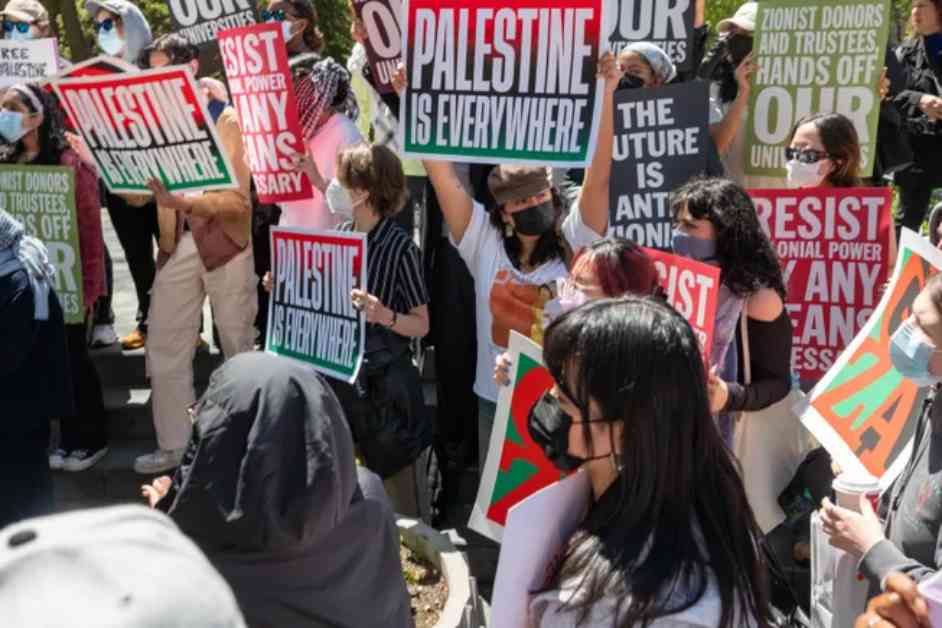NYU Takes Stance Against Anti-Zionist Discrimination: Student Guidelines Clarified
In a move to address discrimination based on Zionist beliefs, New York University (NYU) has updated its student conduct guidelines to include examples of anti-Zionist behavior as misconduct. This decision has sparked debate among faculty members, with concerns raised about potential implications for free speech on campus.
The revised guidelines, announced on Aug. 22, aim to provide clarity on what constitutes discriminatory behavior towards individuals with Zionist beliefs. Examples of such behavior include using stereotypes about Zionists and barring them from participating in open events and university activities. The updated document emphasizes that the use of coded language like ‘Zionist’ does not exempt speech from violating NYU’s nondiscrimination and anti-harassment policy, as Zionism holds significance for many Jewish individuals as part of their identity.
NYU’s Provost Georgina Dopico and Executive Vice President Martin Dorph issued a joint statement affirming that the policy update is meant to offer additional guidance on existing policies and establish a more constructive environment for the upcoming academic year. The university maintains that the changes do not aim to restrict speech but rather to address exclusionary and harassing conduct towards individuals, while preserving the space for scholarly and public debate on political ideologies and policies.
However, the implementation of the updated guidelines has faced criticism from NYU’s Faculty and Staff for Justice in Palestine (FSJP). The group expressed concerns that the policy equates criticism of Zionism with discrimination against Jewish people, which they view as a problematic conflation. They argue that the policy’s equation of Zionism with Jewish identity could potentially legitimize far-right and ethnonationalist ideologies under the guise of protecting students from racial discrimination.
The policy update comes in the aftermath of a contentious period at NYU, marked by protests calling for divestment from companies linked to Israel and subsequent police intervention on campus. The incident highlighted the ongoing debate over defining antisemitism and navigating tensions surrounding pro-Palestinian activism within the university community.
The International Holocaust Remembrance Alliance’s (IHRA) working definition of antisemitism has been a focal point in these discussions, emphasizing the distinction between legitimate criticism of Israel and antisemitic rhetoric. While some U.S. Jewish organizations support the IHRA definition, others caution against its potential misuse to suppress free speech on college campuses.
NYU’s decision to adopt the IHRA definition in 2020 laid the groundwork for the recent updates to its student conduct guidelines. This move has drawn criticism from scholars and advocacy groups who argue for a nuanced understanding of the relationship between anti-Zionism and antisemitism, cautioning against oversimplifying complex political debates.
Kenneth Stern, one of the architects of the IHRA definition, has cautioned against its application as a speech code on college campuses, emphasizing the need to engage faculty expertise in educating students on navigating conflicts and combating hate. He warns against using the term antisemitism too broadly, as it may dilute its significance and impede efforts to address genuine instances of hate and discrimination.
As NYU grapples with defining the boundaries of free speech and combating discrimination, the university community continues to engage in dialogue and debate on how to uphold principles of inclusion while safeguarding academic freedom. The evolving landscape of campus activism and advocacy underscores the importance of fostering a respectful and inclusive environment for all members of the university community.

